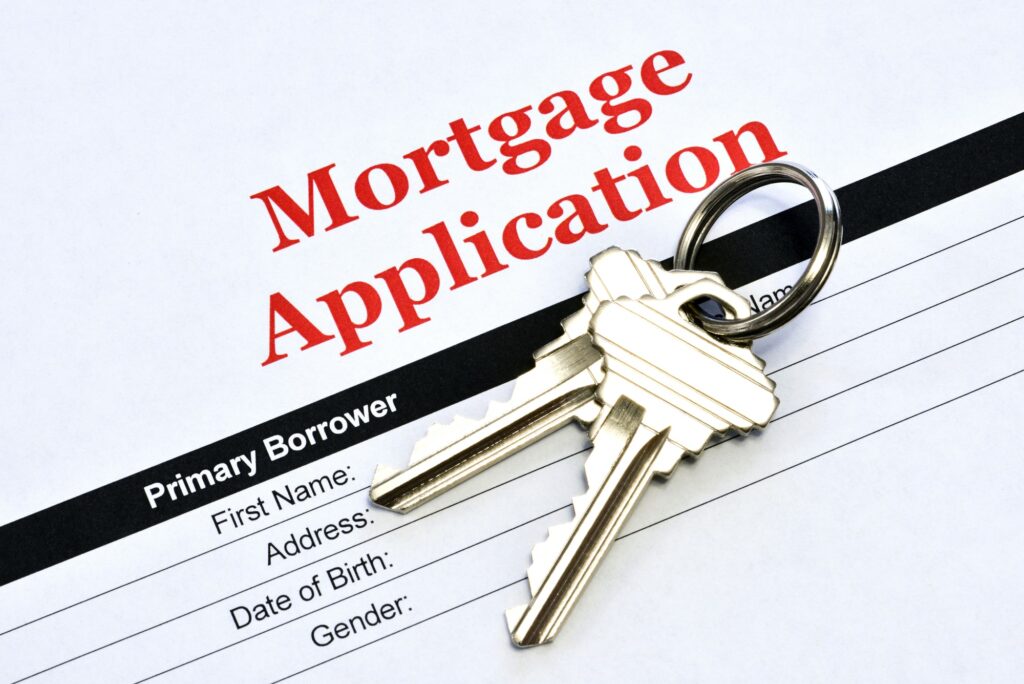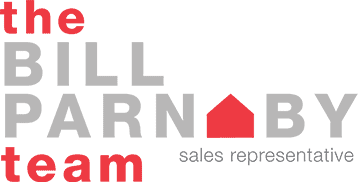Homeownership is a dream many of us share, especially in the idyllic rural community of Caledon, Ontario.
However, the journey towards securing a mortgage is intimidating. It’s such a huge lifetime decision. And you’re not even sure what the minimum credit score for a mortgage is supposed to be!
But you don’t have to worry! I have years of experience helping readers like you find the perfect home in Caledon. That includes helping you understand credit scores and mortgages!
In this article, I’ll guide you through the minimum credit score required for your desired home purchase. Dive in!
Minimum Credit Scores for Mortgages
To secure a mortgage, a credit score of 600 is often seen as a general benchmark. This ensures that you’re in good standing with most financial institutions.
Some mortgage options, especially those provided by alternative lenders, might be more lenient. However, they often come with higher interest rates or require a more substantial down payment.
Breakdown by Mortgage Type in Canada
Different types of mortgages cater to various financial situations. Here’s a snapshot of some prominent mortgage types in Caledon, just like the rest of Canada. You’ll also discover their general credit score requirements.
1. Conventional Mortgages
Major banks and credit unions facilitate a conventional mortgage. This typically requires a down payment of 20% or more of the property’s purchase price.
For these mortgages, a credit score of 650 or higher is preferable. While a score of 600-650 might still get you approved, it could mean higher interest rates.
These are for borrowers who can provide a down payment of less than 20% of the property’s purchase price.
In such cases, mortgage default insurance is mandatory. This is to protect the lender against potential payment defaults.
A minimum credit score of 600 is generally required, but again, the closer you are to 700, the better the potential rates.
3. Alternative Lenders
For those who don’t meet the standard requirements of traditional lenders, alternative lenders can be an option. These might be private lenders or institutions specializing in non-traditional lending.
Credit score requirements can vary widely with alternative lenders. Some may accept borrowers with scores below 600.
But, if they do, they expect higher interest rates or more significant down payments in these situations.
Understanding Credit Scores

In financial health, few metrics hold as much sway as the credit score.
A credit score is a comprehensive snapshot of your financial reliability. In Caledon, as it is for the rest of Canada, this score ranges between 300 and 900.
The higher your score, the more favourable you appear in the eyes of lenders, whether you’re applying for a credit card, car loan, or a mortgage.
Every time you borrow money and how you manage that debt, you’re either building or damaging your credit reputation.
Major banks, credit unions, and service providers look at this to gauge the level of risk they might be taking by lending you money.
Factors That Influence Your Credit Score
Your credit score is the result of a series of financial behaviours and decisions. Here are the pillars that hold up your credit score in Caledon and in Canada in general:
1. Payment History.
Arguably the most significant factor, making up about 35% of your score. It captures the essence of your financial reliability.
Every timely credit card payment, utility bill, or mortgage payment bolsters your score. Conversely, missed or late payments tarnish it.
2. Credit Utilization
Constituting about 30% of your score, this refers to the percentage of available credit you’re using.
For instance, if you have a credit card with a $5,000 credit limit and you owe $2,500, your credit utilization is 50%. A lower rate, ideally below 30%, signals responsible credit management.
3. Credit History Length
Lenders find solace in longevity. A long history of credit, provided it’s positive, instils more confidence in lenders than a brief one, even if it’s spotless. This makes up about 15% of your score.
4. Types of Credit
Diversity is your friend. Having an assortment of credit accounts enriches your credit profile.
This includes credit cards, retail accounts, lines of credit, and mortgage loans. It accounts for roughly 10% of your score.
5. Inquiries and New Credit
Every time a financial institution checks your credit, it’s recorded.
Numerous checks in a short span might suggest you’re chasing after credit, which could raise concerns. This impacts approximately 10% of your score.
6. Public Records and Collections
Bankruptcies, liens, or collection actions can dent your score. While they might not always be in your control, they’re red flags for potential lenders.
How Credit Score Affects Mortgage Terms
Your credit score wields significant influence.
This shapes the contours of the mortgage deal you might receive. Let’s look into how this number can redefine your mortgage landscape.
Impact on Interest Rates
A higher score signals a history of responsible financial behaviour, making you a less risky bet for lenders.
If your score is in the upper echelons (700 and above), you’re likely to be offered competitive, lower interest rates.
Over the span of a mortgage, this can translate to substantial savings in interest payments.
Scores hovering around the 600 mark or below might attract higher interest rates. This could mean larger monthly mortgage payments and a heftier interest bill over the life of the loan.
Loan-to-Value Ratio (LTV)
The Loan-to-Value ratio is a critical metric in the Canadian mortgage space.
It represents the amount of the mortgage loan as a percentage of the property’s appraised value or purchase price, whichever is lower.
Your credit score can influence the maximum LTV ratio lenders are willing to offer. A robust credit score might allow for a higher LTV, meaning you could potentially borrow more against the property’s value.
A weaker score might constrain this, requiring you to make a more substantial down payment to reduce the LTV.
Mortgage Insurance Premiums
If your down payment is less than 20% of the property’s value, you’ll need to purchase mortgage default insurance.
This insures the lender against potential default on your part. Your credit score can influence these premiums.
A higher credit score might slightly reduce the premium percentage, given the lower perceived risk. Conversely, a score on the lower side could slightly increase these premiums.
It’s essential to factor in these costs, as they can add a considerable sum to the overall mortgage amount.
Flexibility Among Lenders
Different lenders in Caledon have different appetites for risk. This flexibility often mirrors your credit score.
Variation in Credit Score Requirements
Traditional financial institutions, like major banks, often have stringent credit score benchmarks. A score below their threshold might make it challenging to secure a mortgage with them.
Alternative lenders or credit unions might have more flexible requirements. They might be accommodating borrowers with lower credit scores.
Specialized Lenders or Programs
Caledon boasts an array of specialized mortgage programs tailored to different needs:
For those with poor credit histories, certain lenders specialize in “bad credit mortgages.” While these can be a lifeline, they often come with higher interest rates.
First-time home buyer programs might offer some leeway on credit score requirements. They might recognize the challenges of building an extensive credit history early.
Manual Underwriting
Some lenders in Caledon still use manual underwriting, especially for complex cases. This process involves a human underwriter assessing your financial health.
This offers a more holistic view than just your credit score. It can be especially beneficial if you have a unique financial situation that doesn’t fit the typical mould.
Potential Paths for Those with Low Credit Scores

A low credit score isn’t an insurmountable barrier in the pursuit of homeownership. Let’s explore the avenues available to those whose scores might not be in the prime territory yet.
Strategies to Improve Credit
One of the foundational steps to enhancing your credit is to closely monitor your credit report. In Canada, you can obtain a free annual credit report from the major credit bureaus, namely Equifax and TransUnion.
Another strategy revolves around the timely payment of bills, credit card balances, and loans. Ensuring these are paid on schedule is important for maintaining a healthy credit score. To make this easier and to avoid missing any due dates, setting up automatic payments can be a proactive measure.
Furthermore, credit utilization plays a significant role in determining your credit score. The general guideline is to use less than 30% of your available credit limit. For instance, if you possess a credit card with a limit of $10,000, it’s advisable to keep the balance below $3,000.
Lastly, it’s wise to exercise caution when applying for credit. Each credit check, whether for a credit card or a loan, can slightly impact your score. Instead of making many applications in a brief period, it’s better to space them out, allowing your credit score to recover between checks.
Government-Backed Loans
While Canada doesn’t have an FHA-equivalent, it does have the Canada Mortgage and Housing Corporation (CMHC).
The CMHC offers support to homebuyers with a smaller down payment and potentially lower credit scores.
However, buyers need to pay a mortgage default insurance premium, which protects the lender if the borrower defaults.
Own Your Dream Home in Caledon
Understanding the intricacies of the Canadian mortgage market is pivotal for owning your dream home in Caledon. While your credit score plays a significant role, it’s just one piece of a larger puzzle.
With the right approach, resources, and guidance, navigating this landscape becomes more manageable.
For those in Caledon and the surrounding regions, consider leveraging the expertise of the Bill Parnaby Team.
With our deep understanding of the local market, we stand as an invaluable resource in your home-buying journey! Contact us now!





